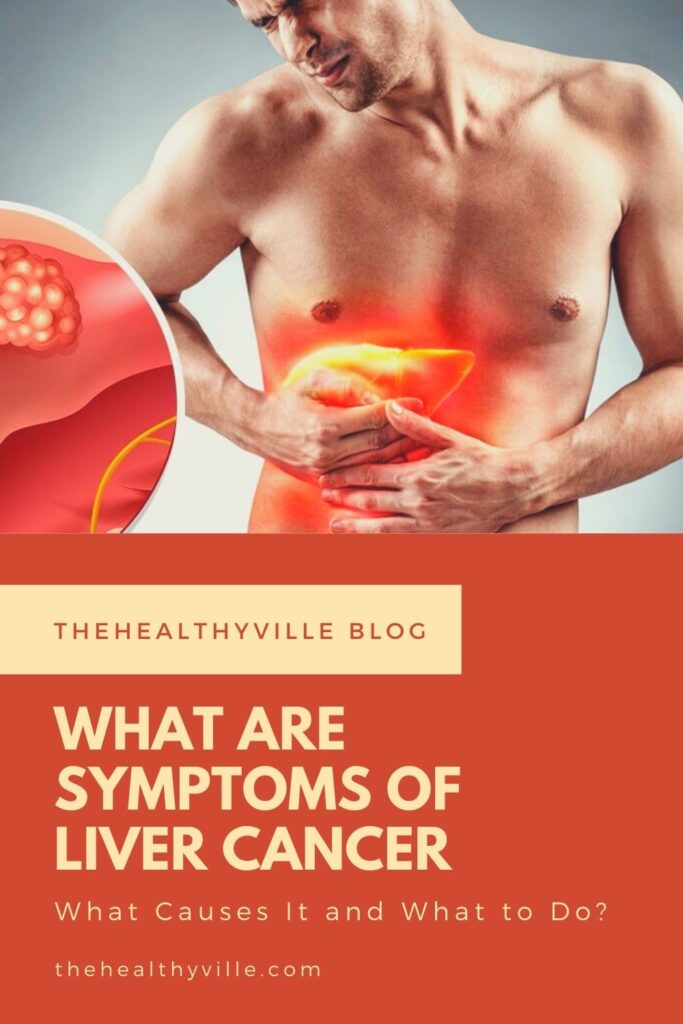What are symptoms of liver cancer that you can recognize to treat the disease on time? Which are the causes? What can you do to save your life? Find out!
Liver cancer puts the proper functioning of this organ at risk, which leads to significant systemic damage.
Liver cancer is a serious disease in which liver cells begin to divide uncontrollably. However, not all tumors that develop are malignant, sometimes the tumor is completely benign.
As a general rule, the liver fulfills important functions essential for the functioning of our body:
Continuously synthesize clotting factors. These substances participate in the formation of clots, which prevent blood loss from wounds.
It breaks down toxic substances (such as drugs or alcohol) and removes their remains through the urine.
It secretes bile into the small intestine, a substance that digests certain nutrients, such as fats. But, it also stores glycogen, a natural energy reserve. Learn what are symptoms of liver cancer, what causes them and what to do about the disease.
What are symptoms of liver cancer?
The most frequent signs or signals that we can relate to this disease are the following:
- Edema.
- Nausea and vomiting
- Weakness, tiredness, or fatigue
- Enlargement of the liver and spleen.
- Generalized jaundice or yellowish hue.
- Loss of weight in a short period of time due to loss of appetite.
- Hormonal alterations: high levels of cholesterol, calcium or red blood cells, as well as hypoglycemia.
Risk factors
Currently we do not know the exact causes that alter the DNA of cells to modify their reproduction. However, several risk factors can be named:
- Chronic viral hepatitis. It is an infection that can lead to the development of other liver diseases. Likewise, we include both subtypes B and C.
- Cirrhosis. As a general rule, liver cells have been attacked and fibrous tissue forms in the area. Also called liver scarring.
- Alcoholism (excessive alcohol consumption). The liver is the organ in charge of processing this toxic substance and abnormal amounts of it can alter its functioning.
- Obesity (high body weight). This medical condition increases the risk of certain diseases that can affect the liver (such as hepatitis or cirrhosis, for example).
- Type 2 diabetes. This disease is related to being overweight.
- Smoking. Tobacco can alter the genetic material of the cells that make up our body, producing mutations that can lead to the presence of cancer.
- Heavy metal poisoning, especially arsenic.
- Infections with certain parasites, especially those that cause the development of schistosomiasis.
- Drug use or doping. For example, anabolic steroids are male hormones that are used to increase an individual’s muscle mass.
What can you do about it?
On the other hand, some of the following procedures can relieve the patient:
- Surgery (partial hepatectomy or liver transplant). As a general rule, this organ is partially or totally removed. In the latter case, its replacement would be necessary, that is, a liver transplant.
- Ablation of the tumor. As a general rule, it can destroy the cells that make up the tumor, which is usually small.
- Tumor embolization. Doctors apply chemicals that reduce blood flow to tumors to try to kill cancer cells.
- Radiotherapy. In this technique, high directed radiation is applied to the individual that destroys the cells that cause the tumor in this organ.
- Targeted therapy. Medications or drugs to exclusively combat this pathology are used by trying to repair the DNA that has been altered.
- Immunotherapy. On the other hand, the subject can be administered certain antibodies in a serum that will travel to the affected liver through the blood. There they will attack the abnormal cells progressively.
- Chemotherapy. Likewise, the patient may need certain medications or drugs that will slow the growth of the tumor and try to neutralize it over time.
To consider
Note that certain adverse reactions may occur when practicing these techniques. In fact, some of the most common are: anemia or iron deficiency in the blood, alterations in intestinal transit, and nausea and vomiting.
Of course, they also cause other affectations (common in other types of cancer), such as: hair loss, fatigue or weakness, infections and other alterations in the rest of the devices and systems.
Don’t forget to SHARE what are symptoms of liver cancer and what do to about them with your friends and family on your social networks!

